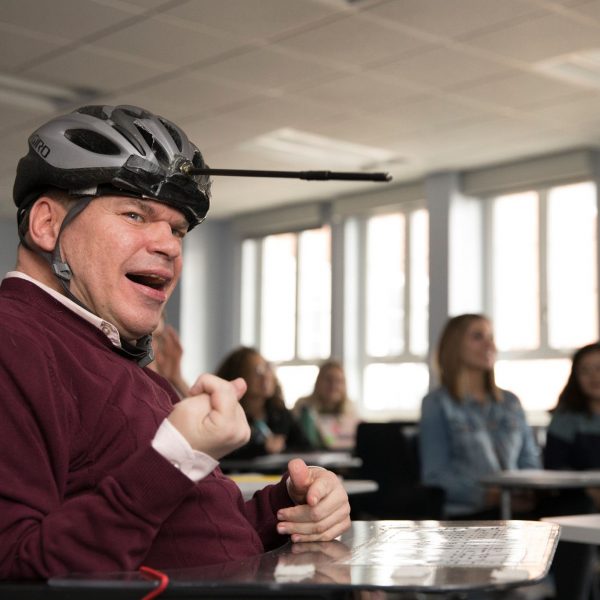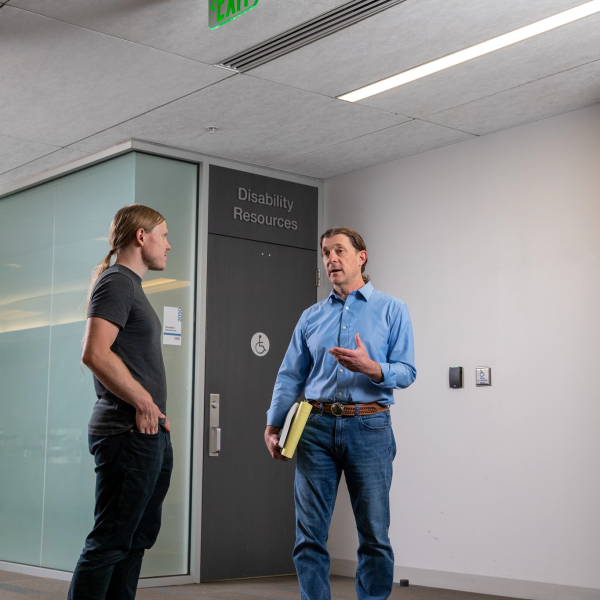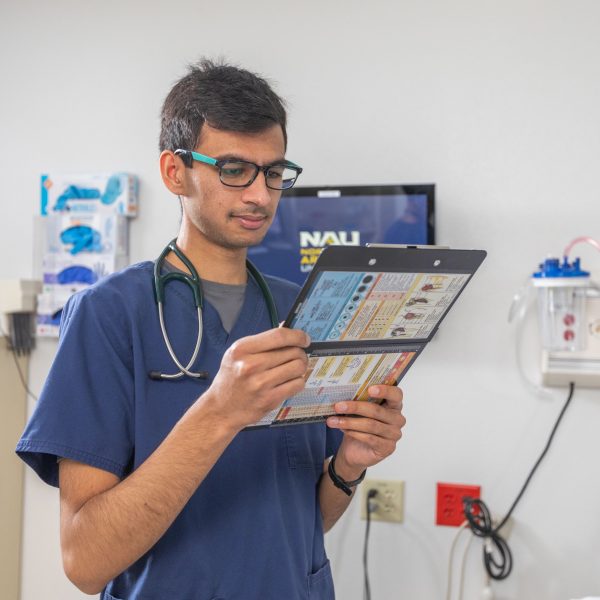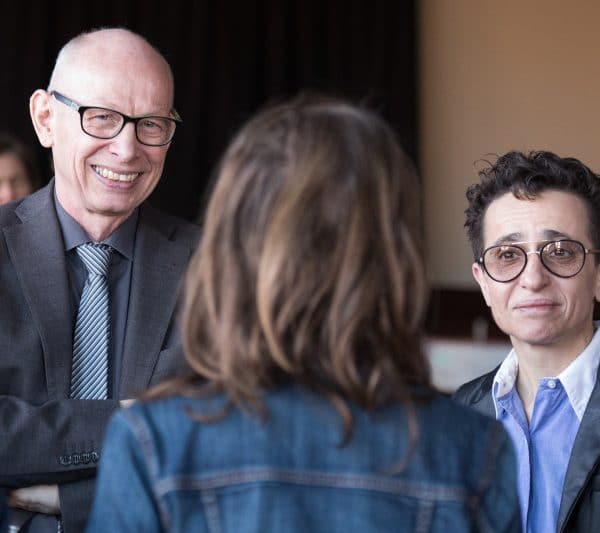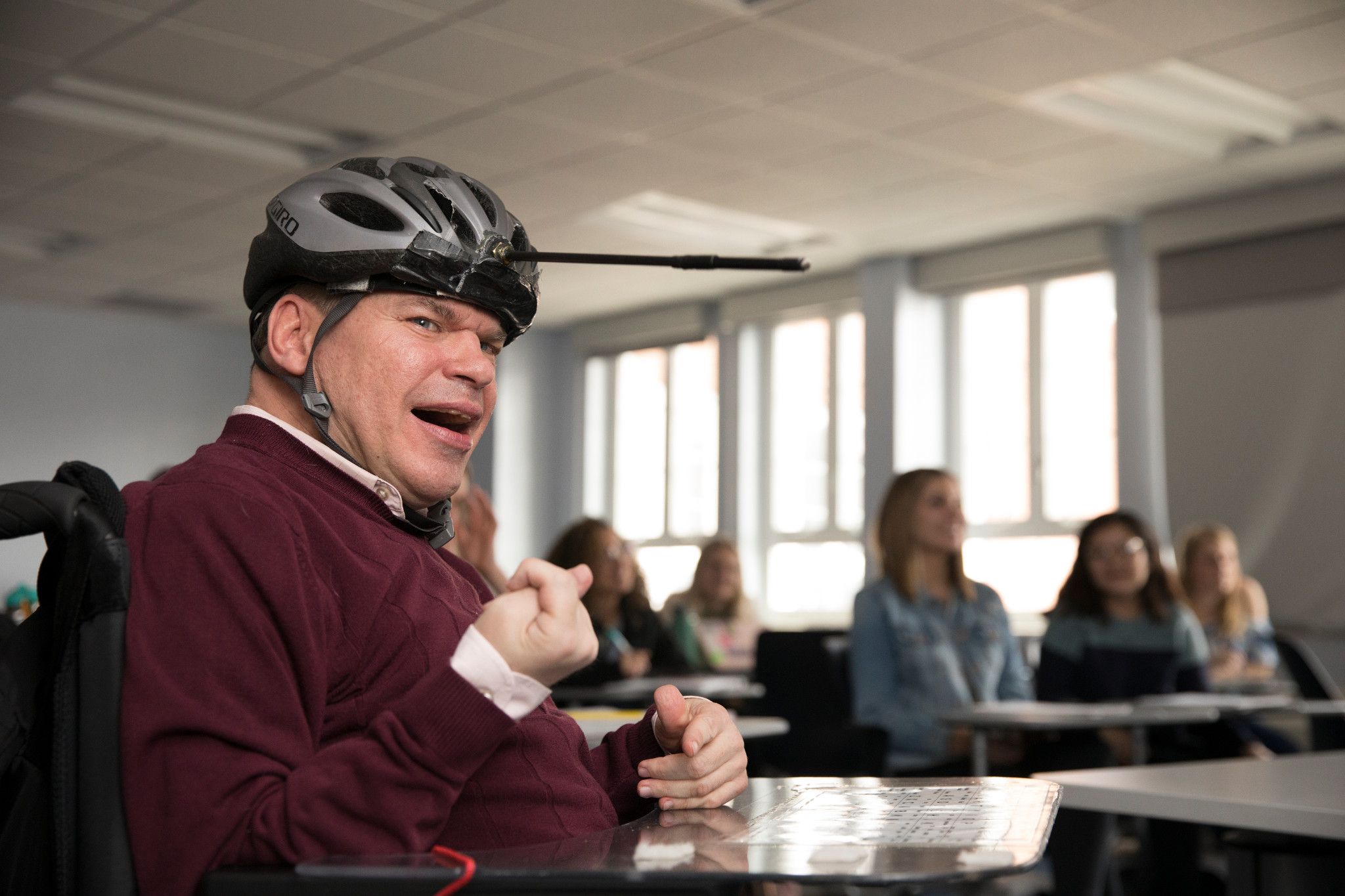
Professor Matthew Wangeman advances the discourse of ability and inclusion.
Northern Arizona University hosts innovative programs, like Disability Studies, that are known throughout the country. Professor Matthew Wangeman, of the Institute for Human Development (IHD), is carving a path for others through his role in the Disability Studies program. Wangeman has cerebral palsy, a neurological condition that affects muscle coordination and body movement. To communicate with colleagues and students, Wangeman wears a bike helmet equipped with a stylus attachment that he uses to tap letters and words on a letter board attached to his wheelchair. Sometimes, he uses a computer with voice technology to deliver lectures.
He knows firsthand about the cultural stigma toward people with disabilities. As a result of his experiences, he became a strong advocate for inclusion when he was a student at the University of California, Berkeley. Wangeman said the most significant barrier for people with disabilities is the attitude of others. When the Americans with Disabilities Act (ADA) was passed in 1990, the University of California already had more inclusive laws than what the ADA mandated for the rest of the nation. Wangeman’s background at Berkeley and experiences with cerebral palsy inspired him to keep pushing for more improvement, and he’s still working to expand inclusion and accessibility to this day.
“I really think the ADA is a great civil rights law, and it has put disability on the map in this country. But for people with significant disabilities, the ADA has not done that much in the grand scheme. Employment is a great example,” Wangeman said.
Wangeman isn’t just speaking theoretically. He brings his personal perspective to the classroom as well. After Berkeley, he moved to Phoenix and became integral in creating a new program—funded by a grant from the IHD—with Assistant Clinical Professor Katherine Mahosky. Wangeman knew this was an opportunity to advance public understanding of social identities and the strengths of the disability community.
“When I moved to Phoenix, I got on the Arizona Developmental Disabilities Planning Council. And Richard Carroll, the director of the IHD at that time, said he was writing a grant. They obviously got the money. And then I started working for the IHD. I was also on the IHD board and developed a five-year plan for what the IHD will be focusing its goals on,” Wangeman said.
Although it takes time to develop initiatives, Wangeman has demonstrated time and time again there is no limit to what one can achieve through resilience and persistence.
“I really want my students to be advocates for people with disabilities, and I really believe we can make a society that values all people,” Wangeman said.
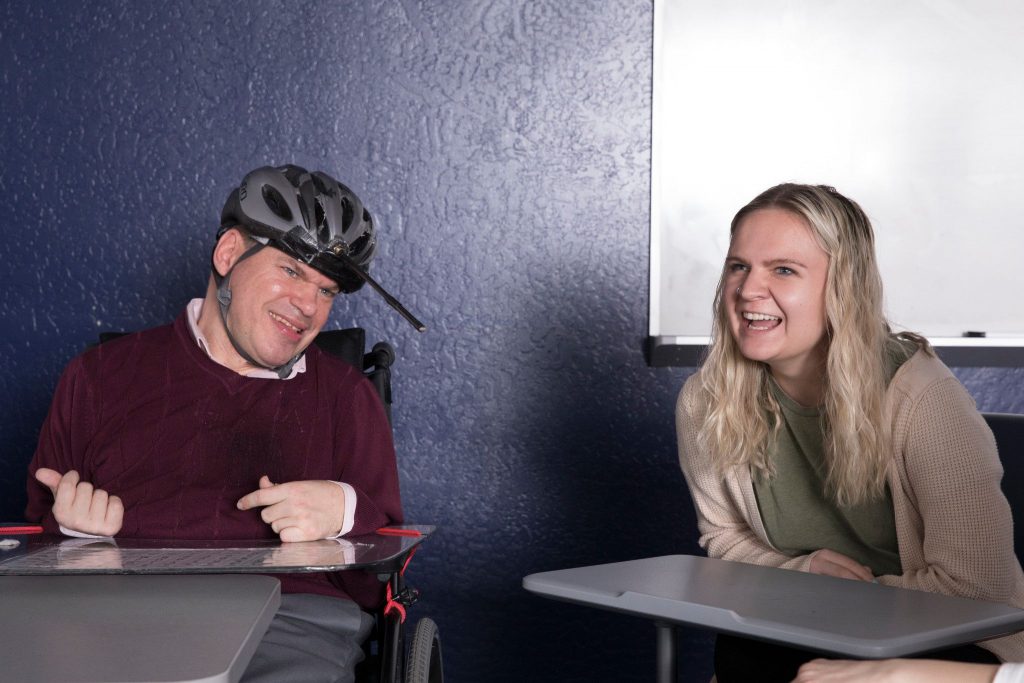
Notable alumnus Alexander Davenport continues to work closely with the IHD to create data on the program. Davenport is leading his own way as the founder and executive director of the Northern Arizona Adaptive Sports Association.
Contributions from Wangeman are life-changing, especially for students to have access to the education they wish to pursue. Difference matters and ability matters, and NAU is becoming a catalyst for exemplifying what can be done instead of what can’t be done with intersectional learning spaces.
I really want my students to be advocates for people with disabilities and I really believe we can make a society that values all people.
In 2020, the IHD was awarded a five-year, approximately $2.5 million grant from the United States Department of Education, Transition, and Postsecondary Programs for Students with Intellectual Disabilities (TPSID) to develop and implement a radically-inclusive support and coaching program for students with intellectual disabilities to attend post-secondary educational institutions throughout northern Arizona.
Wangeman and John McDermott from the IHD host “A Conversation about Disability and Diversity” every semester for the campus community on Zoom. They think it’s vital for people to understand that disability is part of the great diversity that makes up our society.
“People with disabilities have the same rights as everyone else, and I like to say we can have all the laws in the world, but if people’s attitudes do not change, we’re just spinning our wheels. And I use a wheelchair. And if my wheelchair just spins its wheels, I don’t go anywhere,” Wangeman said.
______________________________________________________________________________
If you want to know more about Matthew Wangeman’s life, you can check out the multi-award-winning short documentary film My Dad Matthew on YouTube. It features Wangeman and his son, Elijah, who is currently attending college in New York.

